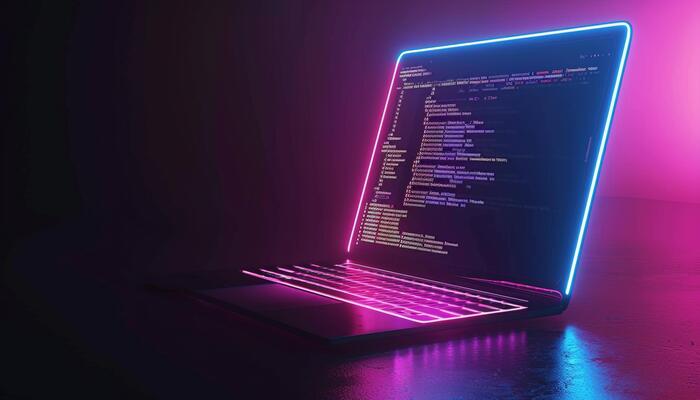Pioneering
Creative
Excellence
NEXTIFY

In the ever-evolving world of software development, one principle remains timeless — clean code. The term may seem straightforward, but its significance in modern development practices cannot be overstated. In an era where technology is advancing rapidly, user expectations are growing, and software is becoming increasingly complex, the importance of writing clean, maintainable, and efficient code has never been more critical.
Let’s explore why clean code matters more than ever in modern software development, and how adopting this mindset can lead to better, more sustainable outcomes for developers, teams, and businesses alike.
What is clean code?
Clean code refers to code that is easy to read, understand, and maintain. It’s not just about achieving functionality; it's about writing code that is clear, concise, and well-structured. Clean code is efficient, reduces complexity, and is easy for other developers to pick up and work with, even if they weren't the ones who wrote it.
Clean code follows well-established coding conventions, is appropriately commented, and is designed with the future in mind — making it easy to scale and adapt to new requirements. It avoids unnecessary complexity and refactors repetitive elements into reusable components.
The evolving landscape of software development
Modern software development has undergone significant transformation over the years. Technologies like cloud computing, microservices, and DevOps have changed the way we build, deploy, and maintain applications. As a result, the complexity of the systems we build has increased substantially.
In addition, software development today is more collaborative than ever. Teams are often distributed across different geographies and time zones, using version control systems and continuous integration tools to collaborate seamlessly. In such an environment, clean code plays a pivotal role in ensuring that collaboration is smooth and effective.
Why clean code is crucial in modern software development
1. Scalability and Maintainability
In today’s fast-paced development cycles, applications are expected to scale quickly to accommodate growing user demands. Clean code ensures that the software can scale easily, as it is modular, flexible, and easy to update. A well-structured codebase enables developers to add new features, fix bugs, or improve performance without breaking existing functionality.
When developers are forced to work with poorly written code, they often spend more time deciphering what the code is doing rather than implementing new features. Clean code eliminates this problem, making it easier to maintain and enhance software over time.
2. Collaboration and Teamwork
Software development is rarely a solo endeavor. With Agile methodologies becoming the norm, teams are continuously iterating, collaborating, and adjusting course based on feedback. Clean code makes it easier for developers to understand each other's work. Well-written code can be picked up by other team members without requiring extensive knowledge of the original author’s thought process.
When the code is clean and well-documented, developers can spend more time solving problems and less time trying to interpret or fix someone else’s messy code. In large teams or open-source projects, clean code fosters collaboration and improves productivity.
3. Faster Debugging and Troubleshooting
In the world of software, bugs are inevitable. However, clean code makes it much easier to debug and fix these issues. With clear naming conventions, well-organized functions, and properly structured logic, it becomes easier to identify where things went wrong and why.
When dealing with tangled or obfuscated code, the time spent debugging increases significantly. On the other hand, clean code allows for quicker issue identification and resolution, reducing downtime and improving the overall quality of the software.

Best practices for writing clean code
To achieve clean code in your development process, consider the following best practices:
Follow coding standards and conventions: Adhere to a consistent style guide (e.g., naming conventions, indentation, and formatting) to ensure your code is readable and understandable to other developers.
Keep functions small and focused: A function should do one thing and do it well. Break larger functions into smaller, more manageable pieces.
Write meaningful comments: Comments should explain why something is being done, not just what is being done. Well-commented code helps other developers understand the reasoning behind certain decisions.
Refactor regularly: Refactoring is an essential part of keeping your codebase clean. Periodically revisit old code to improve its structure, readability, and efficiency.
Practice unit testing: Writing automated tests helps ensure your code works as expected and makes it easier to detect and fix bugs in the future.
Clean code is not just a matter of personal preference or a developer’s vanity; it’s a critical component of modern software development. In an era where software needs to be scalable, maintainable, secure, and adaptable to rapid changes, clean code is the foundation upon which successful applications are built.
By adopting a clean code philosophy, developers can ensure that their work is of high quality, their teams collaborate effectively, and their software meets the needs of users while minimizing risks and future challenges. Clean code is not just about writing code that works — it’s about writing code that works well, is easy to maintain, and stands the test of time.
As software development continues to evolve, clean code will remain one of the most valuable assets in a developer’s toolkit. In modern software development, clean code is more than a good practice; it’s an essential principle that drives efficiency, quality, and long-term success.

